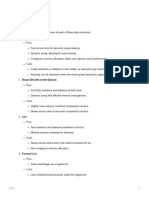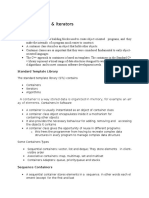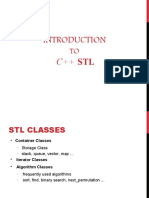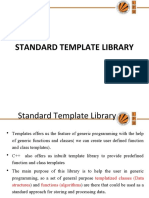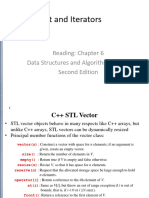0% found this document useful (0 votes)
19 views2 pagesSTL Cheat Sheet
This C++ STL Cheat Sheet provides an overview of various container types including sequence, associative, and unordered containers, along with their time complexities for common operations. It also lists container adapters and common algorithms with brief descriptions. Additionally, it includes code examples and necessary headers for implementation.
Uploaded by
Lavneesh SharmaCopyright
© © All Rights Reserved
We take content rights seriously. If you suspect this is your content, claim it here.
Available Formats
Download as PDF, TXT or read online on Scribd
0% found this document useful (0 votes)
19 views2 pagesSTL Cheat Sheet
This C++ STL Cheat Sheet provides an overview of various container types including sequence, associative, and unordered containers, along with their time complexities for common operations. It also lists container adapters and common algorithms with brief descriptions. Additionally, it includes code examples and necessary headers for implementation.
Uploaded by
Lavneesh SharmaCopyright
© © All Rights Reserved
We take content rights seriously. If you suspect this is your content, claim it here.
Available Formats
Download as PDF, TXT or read online on Scribd
/ 2





















